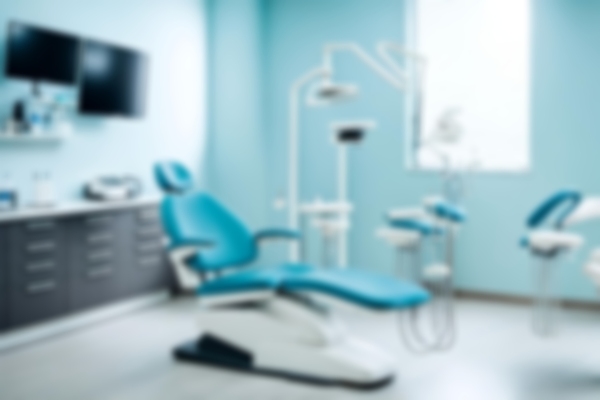 Knowing whether to visit an emergency dentist or an emergency room can make a significant difference in receiving the right care. Dental emergencies can be painful and distressing, but not all require a hospital visit. An emergency dentist is often the best option for immediate relief and specialized treatment. However, understanding where to go in different situations can help ensure the best possible outcome.
Knowing whether to visit an emergency dentist or an emergency room can make a significant difference in receiving the right care. Dental emergencies can be painful and distressing, but not all require a hospital visit. An emergency dentist is often the best option for immediate relief and specialized treatment. However, understanding where to go in different situations can help ensure the best possible outcome.
When to visit an emergency dentist
An emergency dentist addresses urgent dental issues that impact teeth, gums, and surrounding structures. These professionals are equipped with advanced tools and extensive training to efficiently manage a wide range of dental emergencies. Common situations that warrant an immediate visit to an emergency dentist include:
Severe tooth pain
If a person is experiencing persistent or throbbing tooth pain, it may be a sign of an underlying issue. Common causes of tooth pain include:
- Untreated tooth decay
- Gum disease
- Abscessed tooth
- Damaged filling or crown
- Infection
- Teeth grinding or clenching (bruxism)
Prompt evaluation and treatment can alleviate pain and prevent serious complications, including advanced oral infection or tooth loss.
Knocked-out or loose teeth
In cases where a tooth has been knocked out due to trauma, time is critical. If the patient can reach an emergency dentist within 30 minutes to an hour, there is a substantial chance the dentist can reimplant and save the tooth. Professional intervention can often restore the tooth to its original position, whether it is a complete dislodgement or a loosened tooth.
Broken, chipped, or cracked teeth
These injuries can occur from various causes, including accidents, biting hard foods, or grinding teeth. An emergency dentist can assess the damage and offer restorative treatments, such as bonding, crowns, or veneers, to protect the tooth and prevent further deterioration.
Lost fillings, crowns, or bridges
Losing dental restorations can expose the teeth to sensitivity, decay, or infection. Quick intervention can help secure a temporary solution to protect the exposed tooth and maintain dental function. This temporary solution will also give the patient time and flexibility until their dentist can place a permanent restoration.
Gum infections or abscesses
Gum infections can lead to painful abscesses that, if not treated as soon as possible, can spread and cause severe health issues. An emergency dentist can drain the infection and prescribe antibiotics. They can also implement necessary treatments to ensure the health of the patient's gums and prevent further complications.
When to go to the emergency room
While an emergency dentist can often handle most dental emergencies, there are situations where a hospital emergency room may be the better option for immediate medical attention. Situations that require urgent care outside of dental treatment include:
- Severe facial trauma: Facial injuries, such as deep cuts, jaw fractures, or dislocated jaws, need medical evaluation and treatment before any dental care can take place.
- Uncontrolled bleeding: If an individual experiences prolonged bleeding from the mouth that does not stop with gentle pressure, they need to go to a hospital as soon as possible.
- Swelling that affects breathing: Severe infections or allergic reactions can cause the throat or face to swell, which can make it hard to breathe. It is important to get emergency care immediately to treat these serious symptoms and stabilize the patient.
Hospital staff can help manage pain, control bleeding, and treat infections. However, they usually do not address dental procedures like extractions or restorations. If the patient still needs dental care after receiving medical treatment, it is important to see an emergency dentist as soon as possible for follow-up care.
Make the right choice for your unique situation
An emergency dentist is the best choice for quick dental care in emergencies. However, if you have excessive bleeding, trouble breathing, or broken facial bones, go to the emergency room right away. When in doubt, contacting a dentist or medical professional can help determine the best course of action. If you would like more information or to schedule a consultation, contact River Falls Family Dental at our New Albany office.
Request an appointment or call River Falls Family Dental at 812-962-7342 for an appointment in our New Albany office.
Related Posts
If you have severe dental pain, an infection, or an injury, seeing an emergency dentist can give you immediate relief. However, following the recommended care instructions after professional treatment is important to ensure proper healing and avoid potential complications. Following these post-treatment guidelines can lead to a smoother recovery and better overall oral health.Following a…
Oral health myths can often lead to misguided attempts to solve dental problems, potentially making things worse. Emergency and general dentists frequently treat patients who have attempted (and failed) to manage dental emergencies with these quick fixes. Debunking common myths about oral health can save patients time, money, and trouble. Along with that, debunking these…
An emergency dentist is essential for anyone facing unexpected dental issues that require immediate attention. Whether the issue is a severe toothache, injury, or infection, seeking help from an emergency dentist provides prompt evaluation and treatment to prevent further complications. Taking immediate action allows patients to alleviate pain and avoid long-term damage to their oral…
